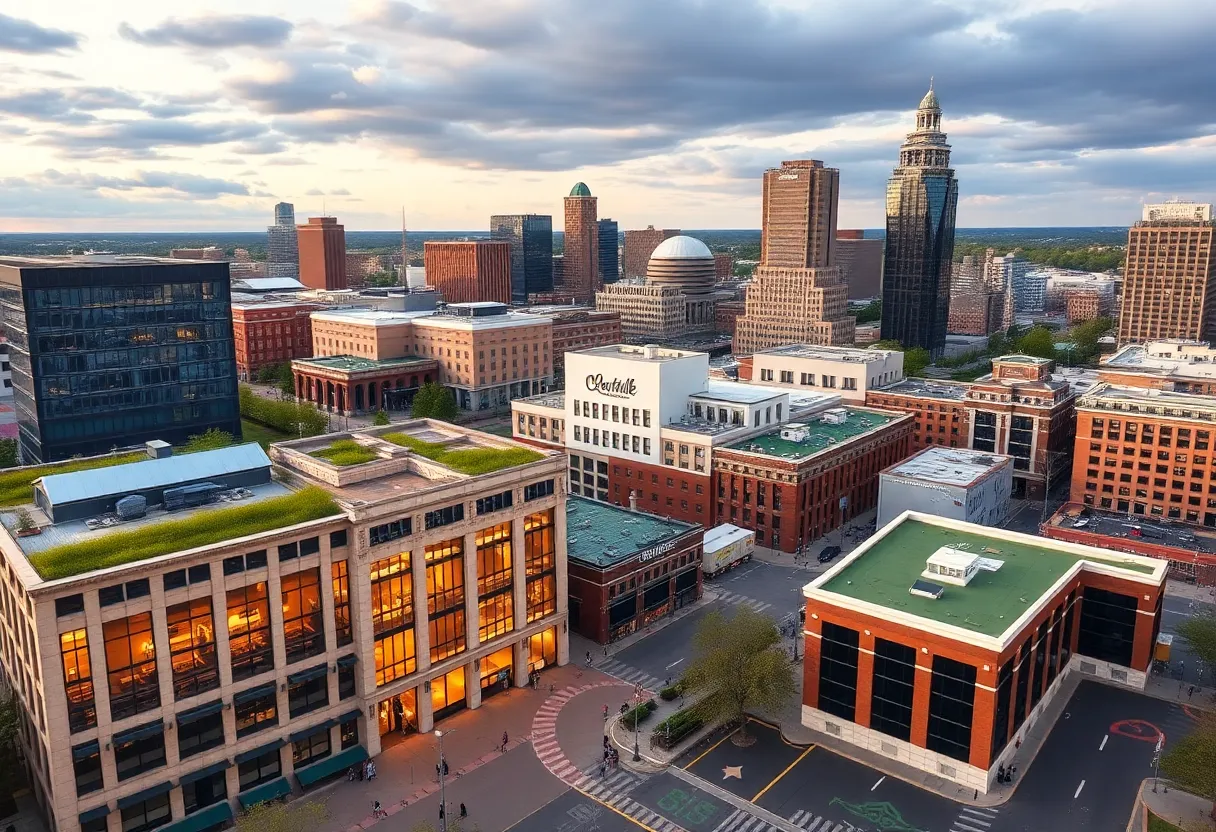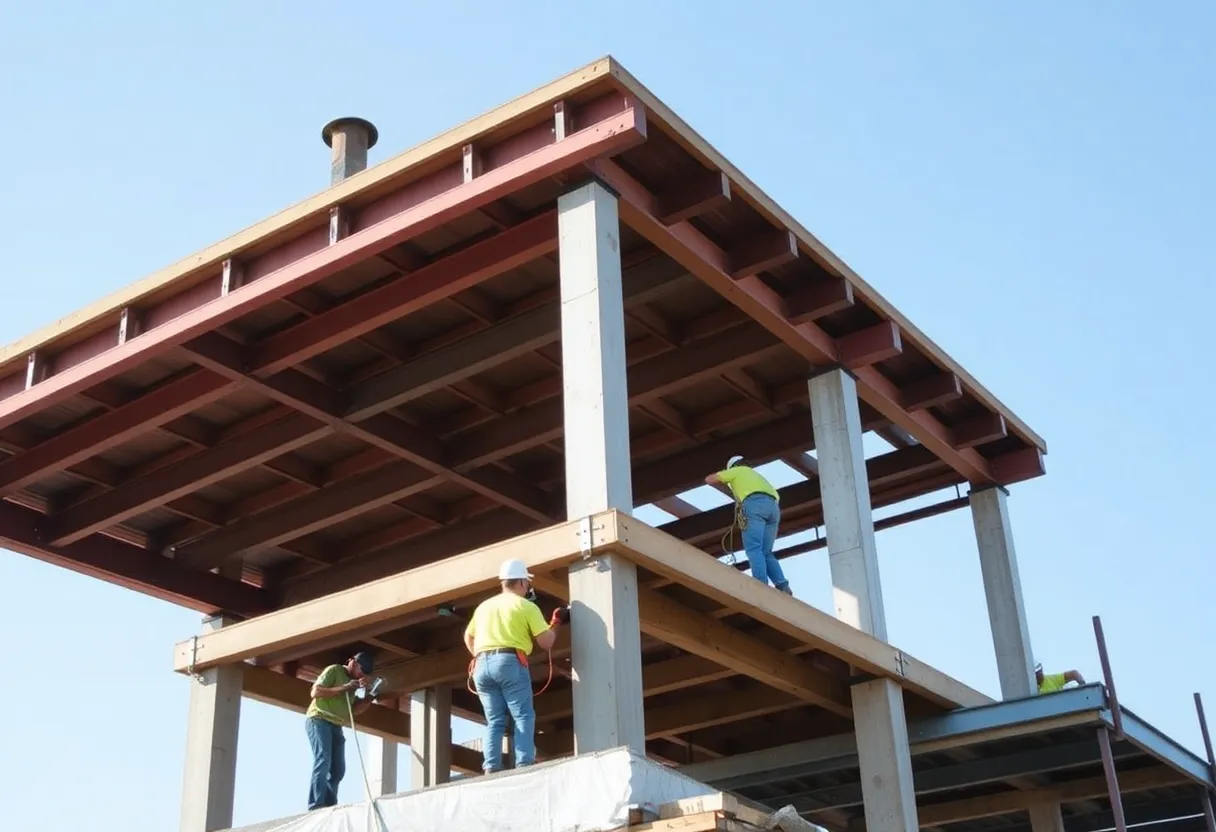News Summary
The Thiruvananthapuram City Corporation has unveiled the Net Zero Carbon and Resilient Buildings initiative, aiming to enhance urban sustainability by reducing carbon emissions. This comprehensive plan covers the entire lifecycle of buildings and emphasizes energy efficiency, innovative materials, and community engagement. The city plans to implement financial incentives for green building practices and improve waste management through a decentralized system. With a focus on long-term environmental impact, the initiative aims to transition buildings to net-zero carbon status while ensuring compliance with climate-responsive design measures.
Thiruvananthapuram City Corporation Launches Net Zero Carbon Initiative
The Thiruvananthapuram City Corporation has announced an ambitious initiative aimed at creating a more sustainable urban environment. Dubbed the Net Zero Carbon and Resilient Buildings (NZCRB), this action plan sets a roadmap to improve energy efficiency, enhance climate resilience, and significantly reduce the city’s overall carbon footprint. The ultimate goal is to achieve net-zero carbon emissions in the building sector while adapting to extreme weather events.
A Comprehensive Approach to Reducing Carbon Emissions
The NZCRB initiative has been designed to address carbon emissions across the entire lifecycle of buildings, covering everything from initial design and construction to eventual demolition. This comprehensive framework aims to save energy and resources while simultaneously minimizing pollution. A tailored NZCRB Cell within the City Corporation will oversee these activities, ensuring the effective implementation and long-term integration of the action plan.
Collaboration with Experts and Innovative Solutions
The action plan was developed through collaboration with leading experts from various organizations, including WRI India and the Indian Green Building Council. One of its core focuses is to introduce innovative materials and technologies such as heat pumps, high-performance glass, and low thermal resistance walling systems. These advancements are designed to cater to the rapidly increasing energy demands resulting from urban expansion and construction approvals in the region.
Renewable Energy and Solar Efficiency
Under the city’s solar cities program, public buildings have already achieved a substantial total installed capacity of 17MW for solar efficiency. This initiative is part of a broader commitment by the corporation to establish a climate budget that supports sustainable practices within the local government.
Financial Incentives and Community Benefits
The NZCRB action plan will also feature financial incentives and training for the local construction workforce, aiming to elevate green building practices. Community cooling spaces are being integrated into urban planning alongside the adoption of nature-based solutions to enhance livability. Additionally, regulations will be established to support the effective implementation of this exciting plan.
Waste Management and Environmental Health
Another key component of the NZCRB plan focuses on waste management. The corporation is set to create a decentralized system for construction and demolition waste segregation, which will include a central processing unit. This will anticipate that up to 50% of demolition waste can be reused, contributing to sustainability efforts and reducing urban heat island effects while improving air quality.
Long-Term Goals for Sustainability
The action plan is not only about immediate change; it ensures long-term benefits such as energy savings, enhanced infrastructure, and the creation of local green jobs. A dedicated steering committee will be responsible for tracking progress and implementing key initiatives, which include transitioning buildings to net-zero carbon status on a set timeline.
Data-Driven Decision Making
Key to the NZCRB initiative will be establishing a baseline inventory to monitor carbon emissions and developing a comprehensive database on the carbon footprint of construction materials. This will guide developers in selecting low-impact alternatives and ensure compliance with NZCRB guidelines for all new public buildings using Building Information Modelling (BIM) and Life Cycle Assessment (LCA).
Support for Developers and Compliance Measures
Financial support mechanisms and tax rebates will be available for developers who adopt greener practices. Furthermore, climate-responsive design features, like rooftop solar energy solutions and passive architecture, will be prioritized, especially in vulnerable areas such as slums.
With this action plan, the Thiruvananthapuram City Corporation is taking significant strides toward a more sustainable and resilient urban future, making substantial commitments to combat climate change through innovative building practices and community engagement.
Deeper Dive: News & Info About This Topic
Additional Resources
- The Hindu
- Wikipedia: Sustainable Development
- New Indian Express
- Google Search: Thiruvananthapuram Net Zero Carbon initiatives
- Times of India
- Google Scholar: net zero emissions
- Times of India
- Encyclopedia Britannica: Climate Change
- South First
- Google News: Thiruvananthapuram sustainability
Author: Construction FL News
The FLORIDA STAFF WRITER represents the experienced team at constructionflnews.com, your go-to source for actionable local news and information in Florida and beyond. Specializing in "news you can use," we cover essential topics like product reviews for personal and business needs, local business directories, politics, real estate trends, neighborhood insights, and state news affecting the area—with deep expertise drawn from years of dedicated reporting and strong community input, including local press releases and business updates. We deliver top reporting on high-value events such as the Florida Build Expo, major infrastructure projects, and advancements in construction technology showcases. Our coverage extends to key organizations like the Associated Builders and Contractors of Florida and the Florida Home Builders Association, plus leading businesses in construction and legal services that power the local economy such as CMiC Global and Shutts & Bowen LLP. As part of the broader network, including constructioncanews.com, constructionnynews.com, and constructiontxnews.com, we provide comprehensive, credible insights into the dynamic construction landscape across multiple states.





